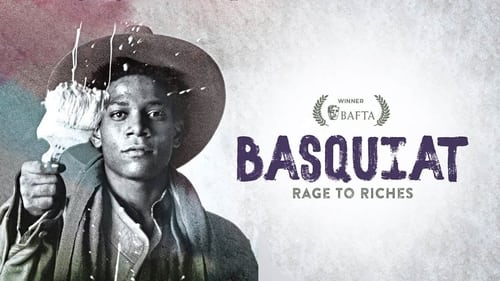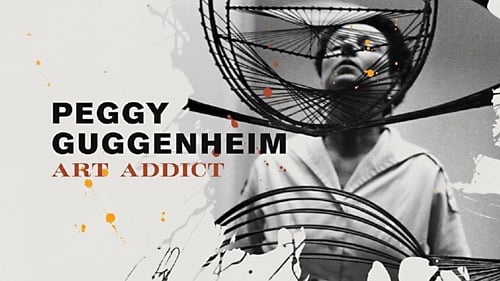
Self (archive footage)
This film tells Jean-Michel's story through exclusive interviews with his two sisters Lisane and Jeanine, who have never before agreed to be interviewed for a TV documentary. With striking candour, Basquiat's art dealers - including Larry Gagosian, Mary Boone and Bruno Bischofberger - as well as his most intimate friends, lovers and fellow artists, expose the cash, the drugs and the pernicious racism which Basquiat confronted on a daily basis. As historical tableaux, visual diaries of defiance or surfaces covered with hidden meanings, Basquiat's art remains the beating heart of this story.

Himself
Retrato biográfico de la coleccionista y galerista Peggy Guggenheim, dirigido por Lisa Immordino Vreeland, que ya llamó la atención con su anterior trabajo "Diana Vreeland, la mirada educada". Basado en su autobiografía, "Confesiones de una Adicta al Arte", el documental cuenta como la heredera de la familia Guggenheim llegó a convertirse en una figura clave del arte contemporáneo. Su vida personal estuvo estrechamente ligada al ascenso de figuras clave del arte del s. XX, fue amante de Jackson Pollock, Alexander Calder y Marcel Duchamp, entre otros y los ayudó a situar su obra entre las más reconocidas y cotizadas del mundo del arte.

Self
A thoughtful portrait of a renowned artist, this documentary shines the spotlight on New York City painter Jean-Michel Basquiat. Featuring extensive interviews conducted by Basquiat's friend, filmmaker Tamra Davis, the production reveals how he dealt with being a black artist in a predominantly white field. The film also explores Basquiat's rise in the art world, which led to a close relationship with Andy Warhol, and looks at how the young painter coped with acclaim, scrutiny and fame.

In this ostensible murder mystery, the genre elements are merely a pretext for the series of haunting (if inconclusive and only mildly erotic) homo-social encounters he stages. Starting with the familiar premise of the absent woman, so popular with Downtown filmmakers, Vogl drains his storytelling of any hints of noir stylization. Instead of nighttime scenes, slick streets, and dark alleys, he shoots documentary-style on the nondescript, sunlit streets of Brooklyn, Manhattan, and City Island in a manner that casually references the art-film angst of Michelangelo Antonioni.

Michel Auder’s Jesus – in which underground NY artists and Warhol superstars openly discuss their beliefs. Jesus – which premiered as a screening at The Kitchen in 1980 – mixes documentary elements such as footage of evangelical TV programs, books, cartoons, paintings, and other Jesus related imagery – with performances including Taylor Mead as a priest in the West Village and Florence Lambert playing a crucified Jesus. Also, intercut throughout are surprisingly candid interviews with Auder’s friends, family, and people he approaches on New York City streets about their faith and relationship to the world’s most famous person. Among those interviewed are Diego Cortez, Jackie Curtis, Gerard Malanga, Alice Neel (Andrew Neel’s grandmother), Larry Rivers, and Viva.




